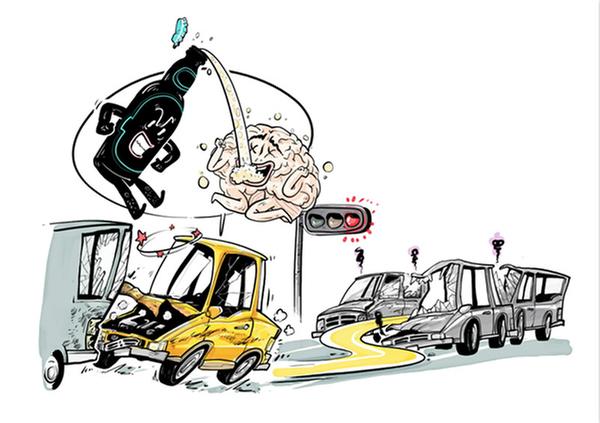Guideline on drunken driving a welcome move

 |
| [Cai Meng/China Daily] |
Editor's note: The Supreme People's Court recently issued a pilot guideline on the penalties for drunken driving, which stipulates that drunken driving that might cause very little harm to society should not be considered a crime, and thus be exempt from the penalties set out for dangerous driving in the Criminal Law, sparking a heated public debate. Following are the views of three experts on the subject:
The reasonable change should be appreciated
 |
| Liu Renwen, director of criminal law faculty, Institute of Law, Chinese Academy of Social Sciences |
Public debates have followed almost all the strict legal stances taken by the authorities since 2011. Even after drunken driving was made a crime under the amended Criminal Law and Road Traffic Safety Law in 2013, a debate ensued. The point of debate this time is whether different levels of penalties should be imposed for drunken driving depending on the gravity of the offense.
Those opposed to the move insist that as long as a driver's blood alcohol content is 80mg/100 milliliter or above, he/she should be booked for committing a crime. And people supporting the move say that despite the offending driver's blood alcohol content being 80mg/100ml or above, if he/she is still "conscious" enough to drive safely, the case should be handled according to Article 13 of the Criminal Law, a proviso clause which could deduce that drivers could be exempt from the penalties set out for dangerous driving.
The pilot guideline issued by the Supreme People's Court could be viewed as returning to judicial rationality. In fact, many countries, however they describe a crime, have adopted disposal approaches for decriminalization of offences, even though the articles that do not regulate penalty levels depending on the circumstances differ.


































